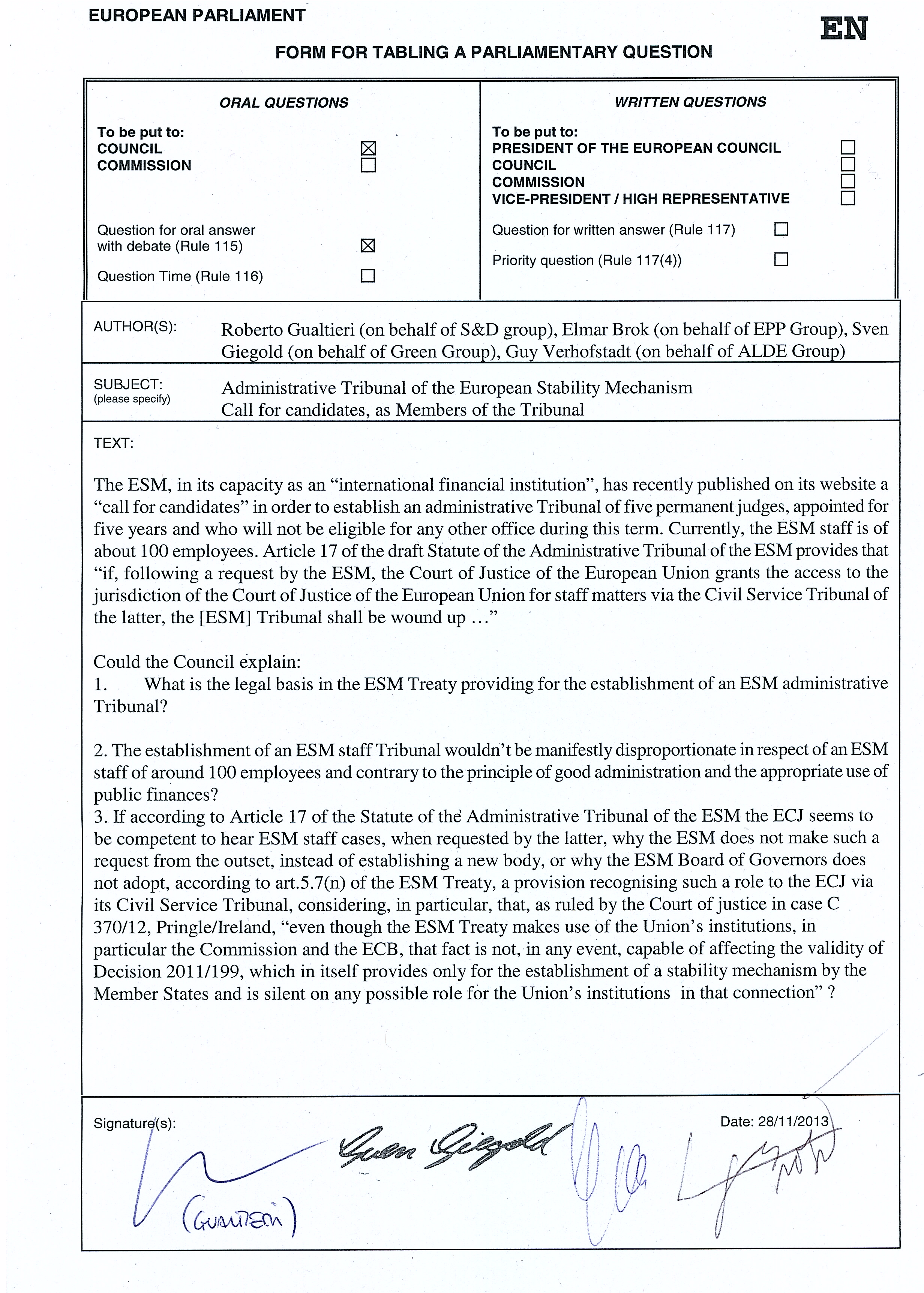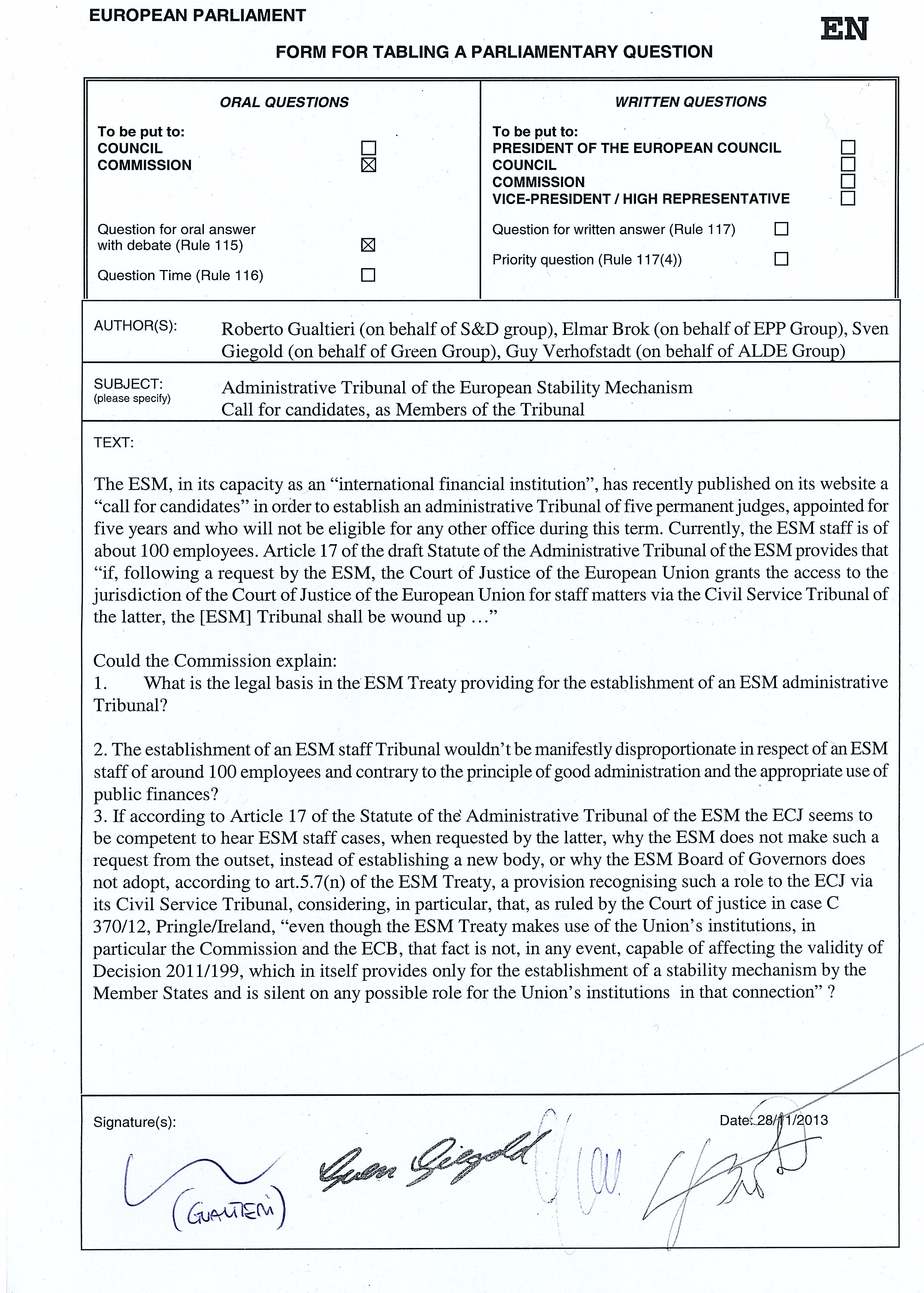Zusammen mit meinen Sherpa-Kollegen Roberto Gualtieri (S & D), Elmar Brok (EPP) and Guy Verhoefstadt (ALDE) I habe ich die folgender Frage an die Kommission eingereicht. Hintergrund ist eine Ausschreibung des Europäischen Stabilitätsmechanismus (ESM) für ein eigenes Tribunal. Das Europaparlament will verhindern, dass außerhalb der demokratischen Gemeinschaftsmethode weitere wenig kontrollierte Institutionen entstehen. Unsere Frage, die auch im Plenum des Europaparlaments diskutiert werden wird:
Administrative Tribunal of the European Stability Mechanism –
Call for candidates, as Members of the Tribunal
The ESM, in its capacity as an “international financial institution”, has recently published on its website a “call for candidates” in order to establish an administrative Tribunal of five permanent judges, appointed for five years and who will not be eligible for any other office during this term. Currently, the ESM staff is of about 100 employees. Article 17 of the draft Statute of the Administrative Tribunal of the ESM provides that “if, following a request by the ESM, the Court of Justice of the European Union grants the access to the jurisdiction of the Court of Justice of the European Union for staff matters via the Civil Service Tribunal of the latter, the [ESM] Tribunal shall be wound up …”
Could the Commission / Council explain:
1. What is the legal basis in the ESM Treaty providing for the establishment of an ESM administrative Tribunal?
2. The establishment of an ESM staff Tribunal wouldn’t be manifestly disproportionate in respect of an ESM staff of around 100 employees and contrary to the principle of good administration and the appropriate use of public finances?
3. If according to Article 17 of the Statute of the Administrative Tribunal of the ESM the ECJ seems to be competent to hear ESM staff cases, when requested by the latter, why the ESM does not make such a request from the outset, instead of establishing a new body, or why the ESM Board of Governors does not adopt, according to art.5.7(n) of the ESM Treaty, a provision recognising such a role to the ECJ via its Civil Service Tribunal, considering, in particular, that, as ruled by the Court of justice in case C 370/12, Pringle/Ireland, “even though the ESM Treaty makes use of the Union’s institutions, in particular the Commission and the ECB, that fact is not, in any event, capable of affecting the validity of Decision 2011/199, which in itself provides only for the establishment of a stability mechanism by the Member States and is silent on any possible role for the Union’s institutions in that connection” ?


